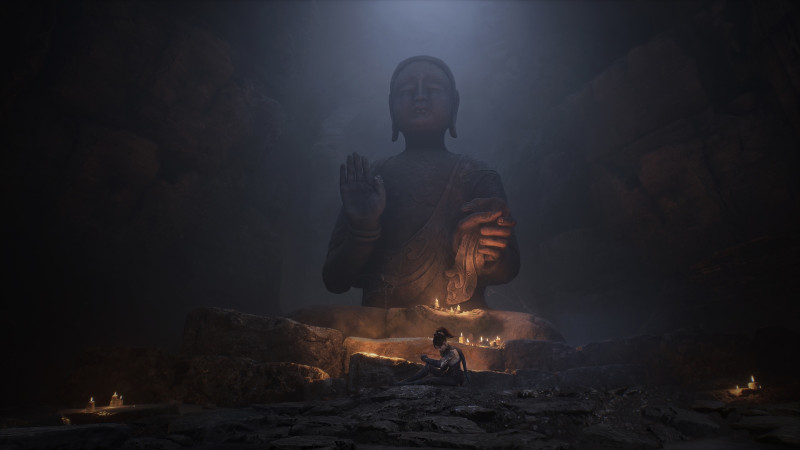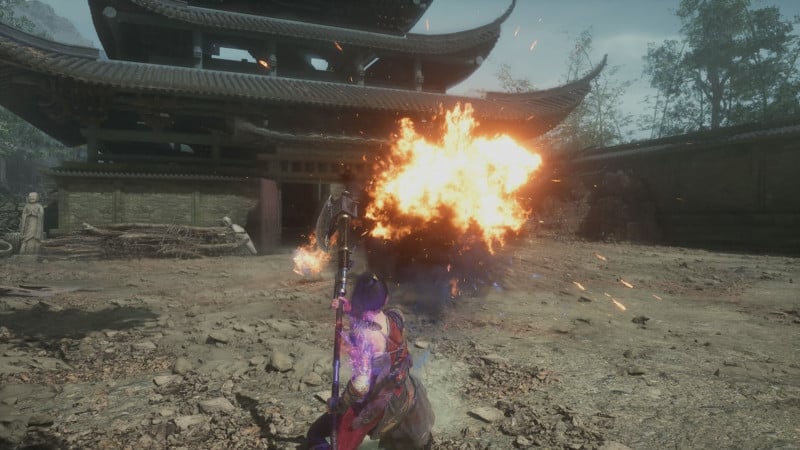Soulslie’s subspecies becomes saturated, so novel ones are tough to distinguish. Wuchang: Fallen Feathers does not reach the upper level of its stronger contemporary ones, but this is a generally well -made control list of the genre with ingenious ideas for adapting the fight and a unique form of lively scaling of difficulty.
As Bai Wuchang, you are a hardened battle infected with supernatural scourge called feathering, which means that the victims are transforming into mindless, hematotage beasts. However, Wuchang somehow spared this fate, but she lost her memory. When the feathers go through well -realized China from the Ming dynasty, it depends on you to direct your newly discovered demonic powers, locate the source of this plague and eliminate them, find medicine and recover your memories. The story is average and, in my specific case, ends with a sudden and unsatisfactory conclusion, unlocked from the pool of possible endings. While the artistic direction is robust, Wuchang suffered fluctuations in graphic loyalty and performance (playing based on PS5), which sometimes bordered on unacceptably bad, hindering this experience.
https://www.youtube.com/watch?v=uj0_8w3a_hy
The fight shines the most in this adventure, derived from Bloodborne. Battles are a often convincing dance of aggressively attacking enemies, while avoiding damage to stay within reach. The exact affected Evades points reward mana points called Skybound Might, used to cast spells. I love how Wuchang in this way encourages skillful avoidance, and winning the fight only by avoiding and retaliation with spells, such as lobbying the scarlet spear or fiery skull, is a real (and sometimes wise) strategy.
Wuchang gives players an almost overwhelming number of systems to adapt their style of play through various weapons (including huge skill trees for everyone), expand and passive benefits. You can equip your weapons with three grants, which are themselves in different types. Sloting to four “needles” to the demonically fenced Bai Wuchanga arm gives the effects of “temperature” of weapons, such as increasing damage from fire or adding a health effect to attacks. A captured mechanic with weapons releases a unique special attack depending on the tools equipped, adding another wrinkle to consider when choosing two weapons for equipment. This is a lot to accept and although I regret that Wuchang did not throw all his functions at the players in a relative brief order – it took some time to grab everything – I like how the game encourages many Playza and more tough meetings, often requires charging or strategy shock.
Weapons classes, including long swords, spears and axles, have unique special attacks and features. For example, Wuchang cannot block by nature, but Axes gives this ability to more defensive players. Those who prefer to rely on spells should be based on magical brief swords. With the economical introduction of the novel weapon, Wuchang allows players to get to know what they have, and progression revolves around the improvement of proficiency in selected arms; I prefer to regularly ride a bike through novel loot.
However, the massive path of skill trees inspired by exile means that you can not freely improve key features, such as strength and health, because only enthusiasts of statistics can be unlocked. This seems more restrictive than I would like, and I did not like to spend thousands of skills in unlocking a special movement that I did not want/needed to get as much +1 improvements as possible along the way.

The dying person builds a meter called madness, which raises your attack, while increasing damage. Failure makes you a glass cannon and I like how madness dynamically changes the rates of meeting, giving me the advantage, forcing me to sharpen my skills to avoid/counteract to annul my weakened defense. When the madness boasts, the mini-boss is welded in the form of an “internal demon” instead of the fallen XP; Defeat her and then recover your points. It is a comical and cunning punishment that adds even greater tension and excitement to recover XP, although the internal demon has become less hazardous when I became stronger.
Wuchanga’s shapely ideas are wrapped around a well -known, though unusual design core. Discovering often biomes similar to the corridor, from a snowy palace to a hellish forest, and cutting enemies is making varnishes after shortcuts and finding hidden objects outside the beaten path, with some irritating unfair threats at the level. Although the tough way to expect from the species, Wuchang is what I would describe as “conveniently difficult:” tough enough to feel a sense of prize, but never for the most part. Most of the boss meetings took me less than five or six attempts to overthrow, and greater challenges were overcome by combining pure finesse and sanding at the level of lithe. As a soul enthusiast, it is almost cozy, as it is ultimately possible to manage Wuchang (comparable), but this makes his larger clashes less unusual or unforgettable.

This last point is my greatest Wuchang. It is very competent and pleasant, but many of them seem to be Soulslike junk food; Tasty with several neat ideas, but nothing will remain with me compared to more significant offers. Wuchang: Fallen Feathers cannot revolutionize the genre, but this is a good version of your favorite song.

